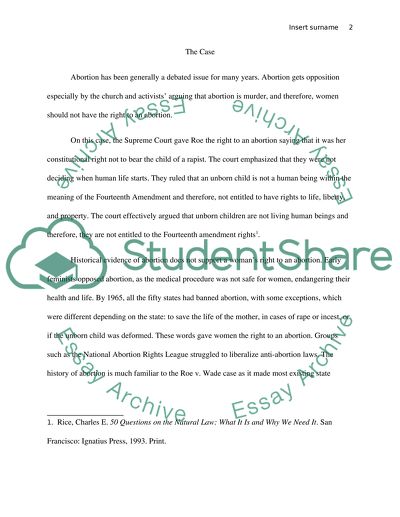Cite this document
(“Roe v. Wade was incorrect legally and constitutionally (Catholic) Term Paper”, n.d.)
Retrieved from https://studentshare.org/history/1588869-roe-v-wade-was-incorrect-legally-and-constitutionally-catholic
Retrieved from https://studentshare.org/history/1588869-roe-v-wade-was-incorrect-legally-and-constitutionally-catholic
(Roe V. Wade Was Incorrect Legally and Constitutionally (Catholic) Term Paper)
https://studentshare.org/history/1588869-roe-v-wade-was-incorrect-legally-and-constitutionally-catholic.
https://studentshare.org/history/1588869-roe-v-wade-was-incorrect-legally-and-constitutionally-catholic.
“Roe V. Wade Was Incorrect Legally and Constitutionally (Catholic) Term Paper”, n.d. https://studentshare.org/history/1588869-roe-v-wade-was-incorrect-legally-and-constitutionally-catholic.


